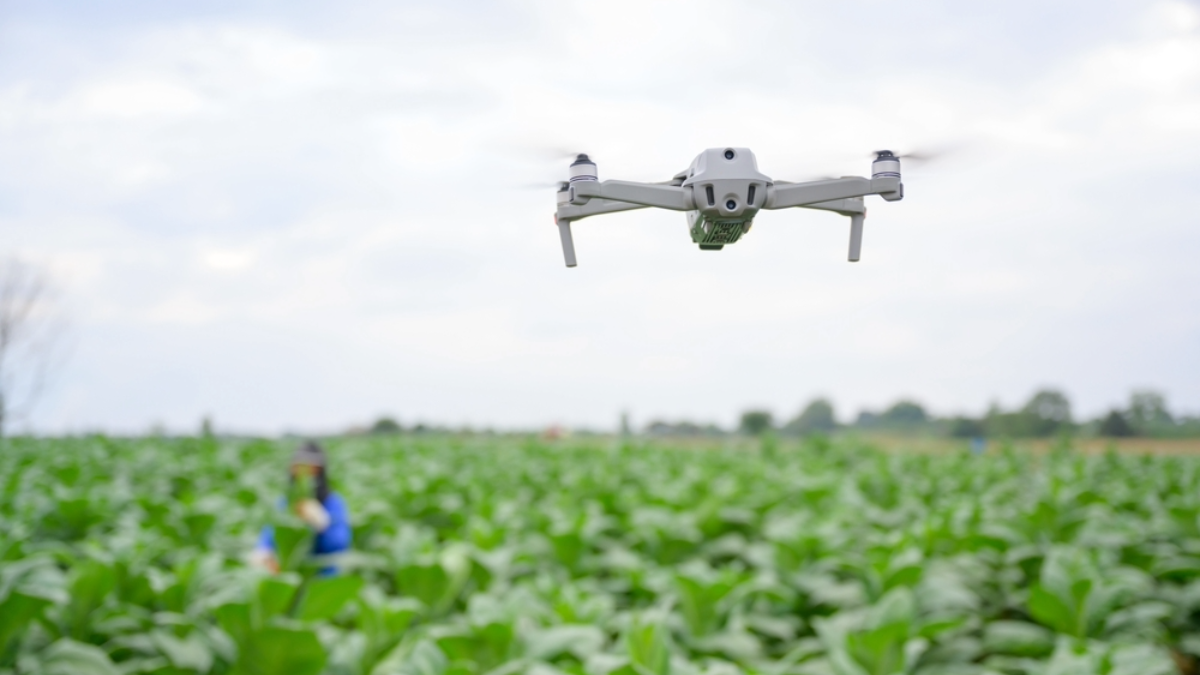Claiming Rights, Making Humans: Data Justice and Agrarian Worlds
Matthew Canfield / Jun 26, 2024This essay is part of a symposium on the promise and perils of human rights for governing digital platforms. Read more from the series here; new posts will appear between June 18 - June 30, 2024.
According to the World Bank, agriculture is undergoing a revolution. Digital technologies—from sensors embedded in soils to mobile phone-based applications—are enabling the collection of food system data. When amassed and analyzed, this revolution is said to enable greater efficiency, sustainability, and food security through the insights and knowledge it offers to farmers, governments, and the private sector.
Yet the extensive collection of agricultural data is also prompting concerns about the power such technologies will endow to technology providers. Farmers lack the expertise and resources to oversee the collection and analysis of their data. Consequently, researchers have raised concerns that digital technologies will lock farmers into particular technologies, nudge them toward particular practices, and ultimately diminish their autonomy by fostering greater dependence on technology providers. In today’s global food system, which is marked by unprecedented corporate concentration and consolidation, analysts and activists stress that this revolution has significant implications for human rights and justice for food producers.
In this short contribution, I explore the tensions of human rights in platform governance through the context of agrarian struggles over datafication—the quantification of social and biophysical worlds into machine-readable forms. Rights offer one language of social justice, but the liberal, individualistic meanings with which they are often interpreted offer a narrow approach to addressing platform-driven inequalities. While this has been explored in a wide range of contexts, it is especially evident in the context of data, where rights have primarily been expressed through claims for individual privacy and the concomitant distinction between “personal” versus “non-personal” data. Critical legal scholars argue that this approach to rights distorts the relational significance of data, fails to effectively curb the expansion of data inequalities, and limits what is rendered visible and thus given salience in governance.
Agrarian movements have long opposed the individualistic assumptions inherent in human rights through their collective claims for “food sovereignty”—a democratic demand of peoples to determine their own food systems. But as they begin to mobilize to contest the inequalities posed by digital technologies and datafication, they are increasingly confronting the hegemonic socio-technical imaginary of data that is co-produced through liberal approaches to privacy—one which assumes that “data” is comprised of neutral and raw facts that can be freely extracted from their social contexts and possessed.
As agrarian movements mobilize to challenge platform-driven inequalities and advocate for alternative political and legal relations to data, I argue that they are not just confronting the limits of individual rights-based paradigms. Rather, they are poised to reimagine the subjects and objects of governance in the age of informational capitalism.
Agrarian movements confronting digital agriculture
Since the introduction of data-capturing machines and sensors in agriculture, farmers’ organizations across the world have raised concerns about the power they endow to agricultural technology providers. As early as 2014, the United States Farm Bureau Federation established a set of Privacy and Security Principles for Farm Data to ensure farmer ownership of data and data portability. Since then, the US, Europe, and New Zealand have all developed corporate codes of conduct in an effort to regulate digital agriculture.
These approaches largely reflect the needs and concerns of large-scale commercial agricultural producers, for whom the first tools of “precision agriculture” were developed. Only recently, as technology providers have developed digital tools for smallholder farmers, have agrarian movements and organizations struggling for the rights of peasants, indigenous peoples, and small-scale food producers—those who produce most of the world’s food—begun to consider the unique threats that data-driven technologies pose to these constituencies.
For such movements, claiming rights in relation to data and digital agriculture raises significant tensions. As noted above, human rights claims in relation to data have largely been focused on data privacy. Farmers in the majority world have drawn on this language to address concerns about the inadequate sharing of benefits between technology providers and farmers and have called for “ownership” over agricultural data. Such claims seek to extend individual property interests beyond “personal data” to the non-personal data generated from farms.
Yet while extending individual ownership to farm-level data may be fitting for large-scale landowners that grow a handful of commodity crops, such a proprietary understanding of data is incongruent with the agrarian worlds of many small-scale producers in the Majority world that grow a wide variety of diverse crops across a wide range of different land tenure systems. Agrarian movements are therefore mobilizing to defend their autonomy against technologies that aim to deepen their dependence on external inputs by seeking to protect and strengthen collective forms of local and indigenous knowledge. In these contexts, establishing ownership over “non-personal” data would amount to expropriation of collective knowledge and resources.
Consider data collected on plant varieties. Many companies now offer apps that allow users to take pictures of a plant and receive instant information on its health. For example, the application Plantix offers farmers free information on plant health and pests in exchange for the data they share with the company. Users are obliged to grant the company “unlimited, worldwide, perpetual, royalty free and transferable rights in User Content” according to the terms of service.
This data is legally considered “non-personal,” but such “data” is derived from plant genetic resources that have been stewarded by communities through selective breeding and seed sharing. As one participant in a recent workshop I attended in Nairobi on digital agriculture said, “Even when data is not personal, it belongs to the community.”
Scholars such as Tesh Degne therefore explain that data extracted from peasant and indigenous agriculture is intertwined with traditional knowledge. He argues that datafication therefore has significant implications for indigenous peoples’ and peasants’ collective rights to control and maintain their cultural heritage.
However, agrarian movements are not just concerned with who data belong to, but also what is datafied and how data is used.
Agrarian scholars have documented how practices of quantification have historically been used to discipline peasants into commercial forms of production. Like past forms of quantification, modern datafication enables governance from a distance, but potentially deepens control by data collectors by deploying such data to undermine local and indigenous knowledge.
Take the example of soil data collected on farms. Soil sensors are one of the most prevalent forms of agricultural data collected. Sensors can provide important information to farmers about soil health. But oftentimes what is measured is restricted to nutrients that can be remedied with synthetic fertilizers. This narrow approach overlooks soil organisms that play a key role in soil health, such as fungi. Seen only from the lens of sensor collected data, datafication can be used to undermine local knowledge and approaches to maintaining soil fertility, while promoting the use of external inputs produced by the private sector.
As these examples indicate, datafication can have profound collective impacts—from the expropriation of local and traditional knowledge to the displacement and dispossession of it through deskilling—that cannot be addressed through an individualistic, privacy-driven approach to human rights.
Constructing rights, people, and data
Farmers’ concerns about data are prompting growing recognition across the Majority World of the need for effective data governance. By establishing legal relations over data, data governance aims to develop rules to enable the collection, use and transfer of data. It is thus critical to facilitate the expansion of digital agriculture.
Yet, while data governance is often framed as a process of developing appropriate technical and normative frameworks, it actually plays a much more powerful role. Data governance serves to culturally construct data as an object of governance as well as legal subjects from whom data can be alienated and transferred.
The meaning and value of data, it must be remembered, is not a given. Critical data scholars have long emphasized that there is no such thing as “raw data” and that data is an assemblage that is always “cooked” by political, cultural, scientific, and legal frameworks. Efforts to establish legal relations over intangible forms of knowledge and culture are thus as much constitutive of data as the persons and communities that seek to assert control over them. As legal scholar Fleur Johns emphasizes, data governance produces new objects and subjects of governance.
As agrarian movements formulate justice claims to address datafication, they therefore face difficult strategic questions. On the one hand, ready-made claims to establish legal relations may challenge the accumulation of data by powerful actors, but may reproduce socio-technical imaginaries of data that render it an alienable “thing” that can be possessed and exchanged. On the other hand, challenging epistemic notions of data can fail to address the ongoing processes of data extraction and attendant power asymmetries in digital agriculture. In other words, defining the who and what of data governance can often be in tension with one another.
Yet if the past is any indication, agrarian movements will likely find new ways to articulate justice claims. As I have written elsewhere, agrarian movements’ claims for food sovereignty have already offered new ways of thinking about legality. So too are they as they respond to the expansion of data colonialism into agrarian worlds and formulate claims. In reimagining the subjects and objects of data governance, they may challenge the enduring separation of mind and body that Bristol University law scholar Folúké Adébísí reminds us is a hallmark of colonial reason and law. Indeed, for many smallholders in the Majority World that maintain traditional and indigenous knowledge systems, knowledge is not divisible from its social context and thus cannot be freely transferred or circulated.
Agrarian movements thus have an opportunity not just to reimagine the subjects and objects of data governance, but also their separation. In doing so, agrarian struggles are likely to be a key battleground and site for alternative world-making in the age of information capitalism.
Authors

